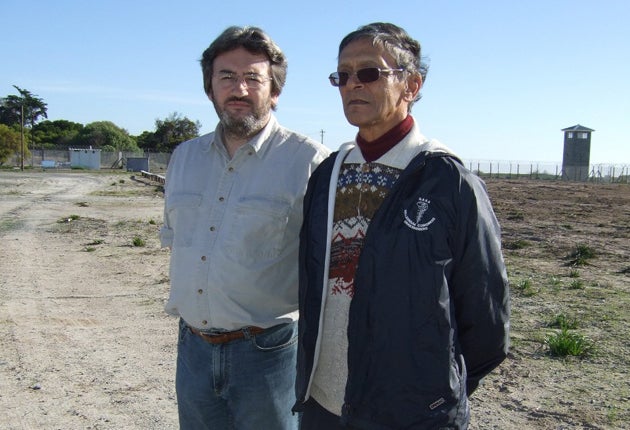Football's Freedom Fighters, Radio 4<br/>Night Waves, Radio 3
How the beautiful game won over apartheid's most notorious jail

Bill Shankly was surely joking when he delivered his famous dictum about football being more than a matter of life and death, but his words came to mind listening to Fergal Keane's moving programme Football's Freedom Fighters, which told how prisoners on Robben Island used the game to carry on their struggle against apartheid. "It was more than just a game," one of them said. "It was something that kept us alive."
After years of campaigning they won the right to play, and formed the Makana Football Association. They bought strips with money sent from their families – or, rather, the warders, who had spent years trying to crush their spirit, went out and bought the strips for them. In fact, they became the footballers' biggest fans – each supporting his section's team. "It changed me," said Christo Brandt, one of whose charges was Nelson Mandela. "I became a human being with them."
More than that, the Makana FA, with its insistence on rules and procedures, became a training ground for future statesmen. (Jacob Zuma, the country's current president, starred in both defence and attack.) "The arrangements reflected some of the most fundamental values we believed in and that brought us to Robben Island in the first instance," said Dikgang Moseneke, who was 16 when he was elected as the FA's first president. He's now deputy chief justice of the constitutional court of South Africa.
If football was played to life-saving and life-changing effect on Robben Island, around the world it's clearly more than just a game, and in Night Waves, David Goldblatt investigated its social and cultural impact. On Monday he looked at Italy. The game was taken there by the Brits, but nationalists tried to reclaim the lingo, insisting that "football" become "calcio", the Florentine game described by Goldblatt as "medieval proto-rugby". Now, with round-the-clock TV punditry, and a prime minister who named his party after a football chant, the game "is at the service of crude populists, muckrakers and scuttlebutt merchants, secret cabals and cliques whose noisy conversation is but a cover for their deeper evasions and silences". Gosh. And all we've got is Alan Hansen.
On Tuesday he gave a fascinating account of the links between football and tango in Argentina. Jose Manuel Moreno, a star of the 1940s, said: "Many people criticised my nights devoted to dancing, but they didn't know how important the tango was for football players. The tango is the best way to train; you maintain a rhythm, then change it when you stride forward. You learn the profiles. You work on your waist and your legs." In England we have Peter Crouch and his robot dance. Not the same thing at all.
Subscribe to Independent Premium to bookmark this article
Want to bookmark your favourite articles and stories to read or reference later? Start your Independent Premium subscription today.

Join our commenting forum
Join thought-provoking conversations, follow other Independent readers and see their replies